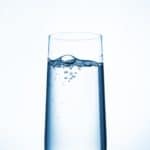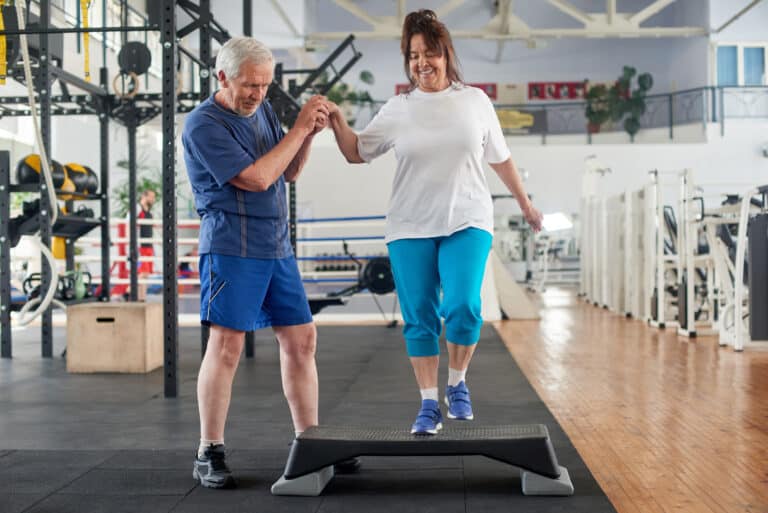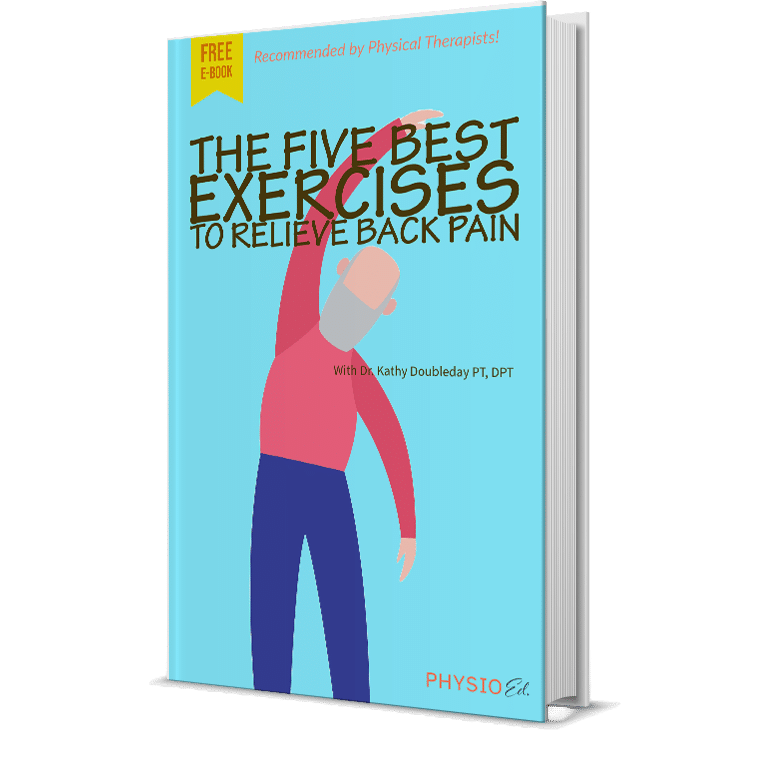Menopausal symptoms such as hot flashes, mood swings, and weight gain can be uncomfortable, and disruptive to your life as they interfere with your sleep, decrease your energy levels, and negatively affect your mental health. Luckily, there are various natural treatment options that can help to manage your symptoms and make this natural transition as comfortable as possible.
Before we dive into the natural symptom relief options, let’s briefly talk about menopause and its’ associated symptoms.
What Is Menopause?
Menopause is a natural physiological period in a woman’s life that typically occurs between the ages of 45 and 52. It is marked by changes in hormonal levels and the cessation of the menstrual cycle. Menopause is diagnosed when you have gone 12 months without a menstrual cycle.
Additionally, post-menopausal women are at a heightened risk of chronic diseases including diabetes, heart disease, osteoporosis, falls, and fractures.
Now let’s discuss some approaches to natural menopause symptom relief.
Regularly Exercise

Engaging in regular physical activity helps to improve your metabolism, energy levels, mental health, bone health, and sleep. It also helps you to maintain a healthy weight and provides protection from various health problems including stroke, heart disease, diabetes, high blood pressure, osteoporosis, obesity, and certain cancers.
Maintain a Healthy Weight
Genetics, aging, lifestyle choices, and changing hormone levels can lead to packing on the pounds during menopause. Unfortunately, gaining weight, particularly around your waist, not only increases the risk of obesity and diabetes, it can also contribute to menopausal symptoms. Maintaining a healthy weight can therefore help keep your menopausal symptoms in check.
Symptoms of menopause vary among women and may include:
- Hot flashes.
- Mood swings.
- Poor memory.
- Difficulty concentrating.
- Vaginal dryness.
- Night sweats.
- Decreased metabolism (often leading to weight gain).
- Difficulty sleeping.
- Hair changes (thin, brittle hair)
- Skin changes (skin dryness).
- Breast changes (decreased fullness).
Most women experience irregular periods to some extent before they stop completely. You may skip a month, or several, and then have a period, or you may have shorter, lighter periods compared to usual.
Foods for Menopause

Fruit and Vegetables
Eating a healthy diet packed with fruits and vegetables can help to maintain your bone health and prevent bone loss. Additionally, consuming a healthy diet helps to ward off chronic health diseases, including heart disease. As an added bonus, most fruits and vegetables are low in calories, so you can eat quite a lot so you’ll feel full, but you’ll also be able to maintain a healthy weight.

Foods High in Calcium and Vitamin D
Eating foods that are high in calcium, including cheese, milk, yogurt, dark leafy greens, beans, sardines, tofu, and fortified milk products is essential for menopausal women. In addition, getting enough vitamin D, through exposure to the sun, supplements, or through consumption of dietary sources including oily fish, eggs, cod liver oil, and fortified foods, is essential. Optimal intake of both calcium and vitamin D is linked to good bone health. Further, sufficient vitamin D intake in post-menopausal women has been found to decrease the risk of hip fracture.

Foods High in Phytoestrogens
Eating foods that are high in phytoestrogens, including tofu, sesame seeds, flaxseed, beans, and soy products, has the potential to mimic estrogen within the body. Consumption of these plant-based compounds therefore has the ability to reduce menopausal symptoms including night sweats and hot flashes.

Avoid Sugar and Processed Food
Eating a diet high in sugar and processed food causes blood sugar spikes, followed by dips, which can make you feel tired and irritable, and may even contribute to decreased bone health. Avoiding sugar and processed food can therefore help to boost your mood, and improve your bone health.
Avoid Food Triggers
Eating and drinking certain foods including caffeine, alcohol, spicy and/or sugary foods is known to trigger some menopausal symptoms including hot flashes, night sweats, and mood swings. While some triggers are obvious, others might not be so apparent. Keeping a food diary noting the foods you consume and any associated symptoms can help to identify triggers in your diet. Once you have identified your food triggers, be sure to avoid them.
Water, Water, Water

Decreasing estrogen levels in the body during menopause commonly leads to dryness. Drinking adequate amounts of water (8 to 12 cups a day) may help to minimize dryness, and can also help to decrease bloating. Further, drinking lots of water can help you maintain a healthy weight because it helps you to feel full, and can also improve your metabolism. If you suffer from hot flashes, try drinking cold water as it may help to cool you down.
Use Topical Vitamin E
Applying topical vitamin E to the vagina can help to minimize vaginal dryness and may also help to relieve hot flashes.
Take Natural Supplements
Various supplements are available that claim to help manage menopausal symptoms, including phytoestrogens, probiotics, prebiotics, black cohosh, kava, DHEA-S, evening primrose oil, and dong quai. However, it’s important to keep in mind that the research evaluating the use of these supplements for menopausal relief is weak. Additionally, it’s important to discuss supplements with your physician prior to using them as many interfere with prescription medications.
Even More Things to Try
- Learn Relaxation Strategies: Learning relaxation strategies including deep breathing, guided imagery, paced breathing or progressive muscle relaxation can help to manage menopausal symptoms when they strike.
- Strengthen Your Pelvic Floor: Performing Kegel exercises regularly can help to strengthen the muscles of your pelvic floor and can help to manage some forms of urinary incontinence that may accompany menopause.
- Try Yoga:Yoga helps to improve strength and coordination which may help to prevent falls and associated fracture.
- Give Acupuncture a Try: While the research is weak, acupuncture may provide temporary relief of menopausal hot flashes.
- Hypnosis: Research has found that hypnotherapy may help to decrease hot flashes for some menopausal women.
- Quit Smoking: If you smoke, it’s important that you quit as long-term smoking has been associated with poor bone health as well as an increased fractured risk. Quitting smoking can therefore help to improve bone health, providing much needed protection during menopause.
If you’re going through menopause and experiencing associated uncomfortable symptoms, you don’t have to suffer. There are many natural therapies that you can try to manage your menopausal symptoms to help you get through this natural transitional period in your life more comfortably.
Sources
https://www.ncbi.nlm.nih.gov/pmc/articles/PMC6419242/ https://www.mayoclinic.org/diseases-conditions/menopause/diagnosis-treatment/drc-20353401
https://www.webmd.com/menopause/guide/menopause-natural-treatments







